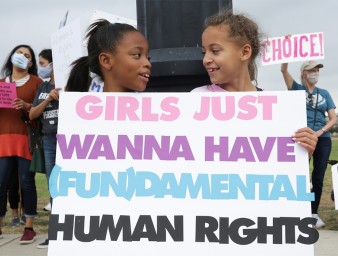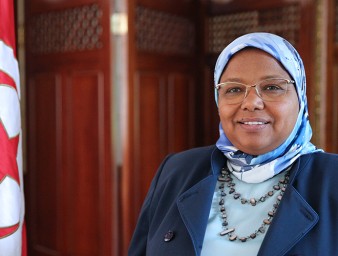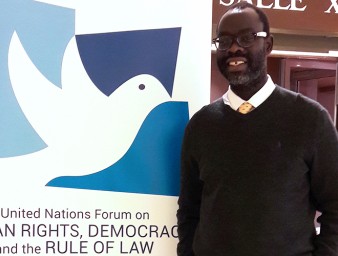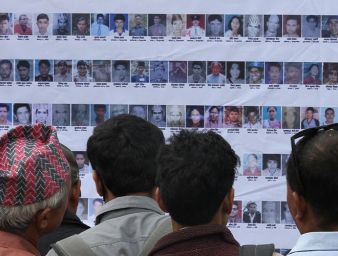Partnerships and training helped prevent election violence
24 March 2023

Elections take place in Kenya every five years. However, electoral processes have often been marred by violence, including sexual and gender-based violence. Such violence impedes the exercise of political rights and has long-lasting detrimental impacts on individuals, families and communities, beyond the electoral phase.
In 2022, investments in partnerships and preventive engagement helped to break this cycle of violence. The United Nations mobilized to support a conducive environment for peaceful, violence-free and inclusive elections. UN Human Rights played a key role in this engagement, building on an inclusive range of partnerships spanning Government authorities and institutions, civil society, grassroots human rights defenders and communities.
Senior Human Rights Adviser to the UN Resident Coordinator, Li Fung, said that sustained investment in these partnerships was essential for the effective promotion and protection of human rights. Over the years, UN Human Rights has worked with the Kenya National Commission on Human Rights (KNCHR), justice and security actors, civil society and grassroots human rights networks, also supporting links between them.
“This critical investment in partnerships and dialogue set the scene for engagement on protection of human rights – including prevention of sexual gender-based violence – in the electoral context,” said Fung.
During the 2022 electoral year, UN Human Rights supported a number of activities to contribute to the smooth running of the electoral process. These included: deployment of human rights monitors across the country; civic education and community dialogue forums to engage youth; integration of sexual and gender-based violence prevention in security sector preparedness; working with women human rights defenders; training of police commanders on human rights-based policing and public order management; and dialogue and exchange between police, the KNCHR and human rights defenders.
“All of this engagement contributed to prevention, and to a conducive environment for peaceful, violence-free and inclusive elections,” Fung said.
UN Human Rights , in partnership with KNCHR and the National Coalition of Human Rights Defenders, deployed human rights monitors in 40 of Kenya’s 47 counties to ensure that countrywide reporting and analysis contributed to early warning and responses to address emerging trends.
“The impact of having these monitors on the ground was that we were able to collect real time data, in terms of the human rights situation,” said Anne Marie Okutoyi, Director of Research, Advocacy and Outreach at KNCHR. “Through our election monitoring system and hub, we were able to quickly synthesize this information into trends and patterns that informed interventions by the Commission.”
Engagement on human rights protection and prevention was bolstered in the weeks leading up to the elections through the deployment of a multi-disciplinary UN Human Rights Surge Team. The team was comprised of human rights officers and UN Standing Police Capacity officers. The six-member team went to reported regional hotspots to monitor the human rights situation with human rights monitors, institutional partners and police.
“Preventative measures definitely contribute to human rights protection, especially through the engagement we have had with communities, and the level of information and analysis shared – which fed into the UN early warning system,” said UN Human Rights Officer Murielle Tchouwo, who coordinated the Surge Team. She said the work of the police and security forces and their openness for engagement were a boon to their monitoring. Tchouwo also noted that the Surge Team reaped the benefits of the long-term engagement initiated by UN Human Rights in Kenya.
Paul Masese, convenor of the Nakuru Human Rights Defenders Network, who worked with UN Human Rights in the pre-electoral phase and collaborated with the Surge Team, agreed. He said he appreciated the training, monitoring and response for emerging situations support received from the Kenya office.
“We are really grateful that UN Human Rights has been present, and to us, that is a measure to curtail any plans for violence.”
The 2022 general elections in Kenya were largely peaceful, with a significant reduction in documented human rights violations and abuses, particularly in electoral-related SGBV, compared to the 2017 electoral period. Police were commended for a significant improvement in professionalism and their restrained posture in public order management, which reflects the increased investment in preparedness and training, and engagement with communities, human rights defenders and peace actors.



